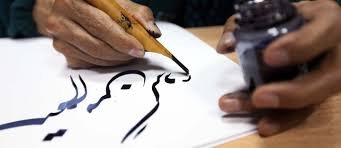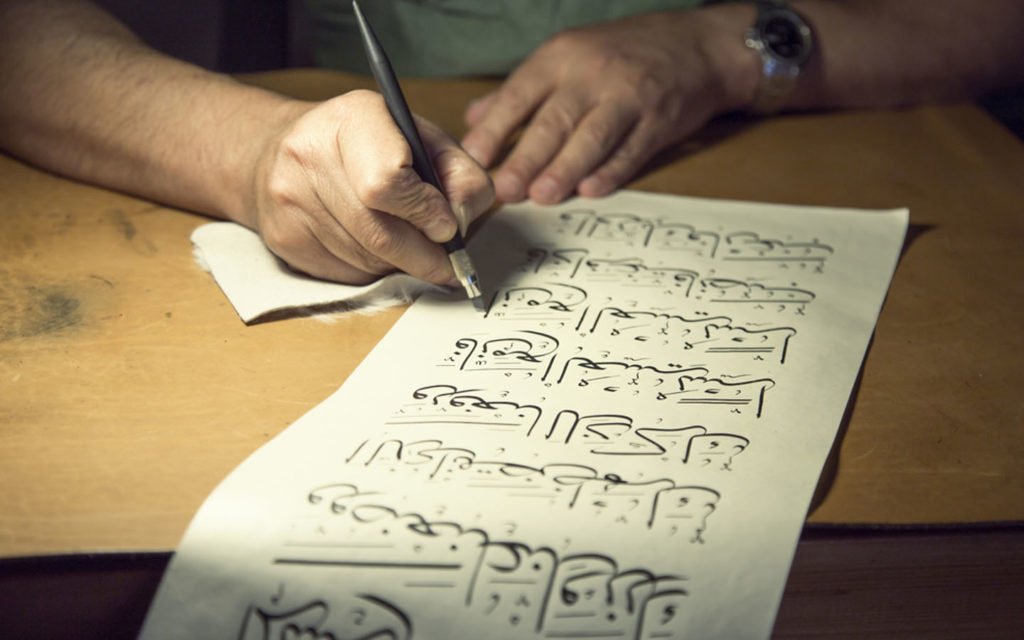In a land where vast deserts stretch to meet the sea, where oral traditions echo across generations, poetry is not just an art—it’s a way of life. Emirati poetry, deeply woven into the soul of the United Arab Emirates, is a powerful reflection of its people’s heritage, emotions, and resilience.
For beginners, stepping into the world of Emirati poetry is like stepping into a room filled with stories—told not only with words but with rhythm, pride, and passion. Let’s explore how this poetic tradition came to be, how it has evolved, and why it continues to hold a sacred place in Emirati culture today.
Poetry Before Pen and Paper
Long before skyscrapers dotted the UAE’s skyline or oil reshaped its economy, Emiratis told stories through *spoken word. In an environment shaped by tribal life, poetry was used to **preserve history, pass down wisdom, celebrate victories, and even *settle disputes.

Without widespread literacy or written records, poetry became the people’s voice. It was performed aloud, from tents in the desert to gatherings by the sea. Poets were the record-keepers—respected figures who could unite or divide with a single verse.
Nabati Poetry: The People’s Verse
At the heart of Emirati poetry lies *Nabati, a colloquial, oral form of verse composed in the everyday Arabic dialect of the region. Unlike classical Arabic poetry (which follows strict meter and structure), Nabati is *earthy, accessible, and close to the hearts of ordinary people.
Sometimes called “the poetry of the Bedouins,” Nabati touches on themes like:
- Love and longing
- Pride in heritage
- Nature and the desert
- Loyalty, bravery, and generosity
- Spiritual reflection and wisdom
One of the most revered Nabati poets in Emirati history is Al Majidi bin Thahir (18th century), often considered a founding figure in this form. His verses are still quoted today, cherished for their lyrical depth and timeless messages.

Poetry as Cultural Identity
To understand the cultural significance of poetry in the UAE, you must look beyond the words. In a society built on oral traditions, poetry was a bridge—between tribes, between past and present, between the soul and society.
A few key roles poetry played in traditional Emirati culture:
- Social Commentary: Poets voiced opinions on tribal politics, leadership, and justice—often more influential than formal proclamations.
- Emotional Outlet: Whether mourning a loved one or expressing admiration, poetry gave shape to emotions that otherwise had no outlet.
- Education and Morality: Poems passed down values like honor, humility, and hospitality—traits central to Emirati life.
- Entertainment: Before televisions and smartphones, poetry was performed in gatherings, often accompanied by music and dance.
Even today, these cultural functions endure, albeit in evolved forms.
The Influence of Sheikh Zayed
One cannot discuss Emirati poetry without mentioning *Sheikh Zayed bin Sultan Al Nahyan, the founding father of the UAE and an accomplished Nabati poet himself. His poetry reveals his *deep love for the land, his people, and Arab values.
Sheikh Zayed’s verses are widely studied and quoted, not just for their literary merit but for the insight they provide into the moral and political vision of the nation’s founding. His legacy continues to inspire a new generation of poets who merge tradition with modern themes.
Modern Emirati Poetry: Bridging Generations
While Nabati remains beloved, contemporary Emirati poets are exploring new territories. Some still write in traditional forms; others experiment with free verse, spoken word, and even poetry in English.
Themes are also expanding. Modern Emirati poetry addresses:
- Urban life and globalization
- Women’s empowerment
- Environmental concerns
- Personal identity and belonging
- Cultural preservation in a changing world
Poets like Ousha bint Khalifa Al Suwaidi (often called “Fatat Al Arab”) have played a monumental role in bringing poetry into the modern spotlight. Ousha broke barriers as a female poet in a traditionally male-dominated space, with verses that were elegant, powerful, and widely admired—even by figures like Sheikh Mohammed bin Rashid Al Maktoum, himself a published poet.
Today, young poets such as Afra Atiq are gaining international attention for blending spoken word with multilingual expression—carrying the torch of tradition while speaking to a global audience.

Poetry in Emirati Daily Life
Even with modern distractions, poetry remains relevant in everyday Emirati life.
- Poetry competitions like Million’s Poet, a televised Nabati poetry contest based in Abu Dhabi, attract massive audiences and prize money—turning poets into national celebrities.
- Poetry salons and festivals are held across the Emirates, particularly in Sharjah and Abu Dhabi, where heritage is deeply honored.
- Schools and universities include poetry in their curricula to ensure that the younger generation remains connected to their linguistic and cultural roots.
In social media too, poetry finds a home. Instagram captions, tweets, and YouTube performances often feature poetic expressions of identity, nostalgia, or social issues.
How to Start Appreciating Emirati Poetry
If you’re new to Emirati poetry, here are a few simple ways to immerse yourself:
- Listen, don’t just read
Poetry in the Emirates is meant to be heard. Look for recordings or live performances to understand the rhythm, tone, and emotion. - Start with Nabati translations
English versions of Nabati poetry are increasingly available. Look up works by Sheikh Zayed, Ousha Al Suwaidi, or Ahmed Al Mulla. - Attend poetry events
Festivals like the Abu Dhabi International Book Fair or Sharjah Heritage Days often feature poetry readings and workshops. - Explore contemporary voices
Search for poets like Afra Atiq, or follow Emirati poetry pages on social media to stay updated on modern work. - Connect with Emirati culture
Poetry is closely tied to other elements like music, dance (especially Al Ayala), and storytelling. Appreciating one will deepen your understanding of the other.

Final Thoughts
In a nation known for its futuristic skylines and cultural diversity, it’s remarkable how deeply poetry remains rooted in the Emirati soul. From desert gatherings to television stages, from tribal ballads to modern verses about identity and change, poetry continues to reflect the heart of the UAE.
Whether you’re a lover of words or simply curious about the cultural depth behind the glitz of the Emirates, Emirati poetry offers a window into a world where language is sacred, memory is rhythmic, and every verse carries a piece of home.
Do follow UAE Stories on Instagram.
The Evolution of Emirate Art: From Traditional Crafts to Contemporary Masterpieces













